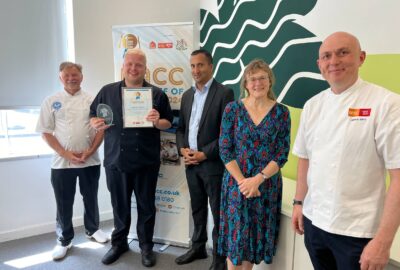An innovative nurse has created a simple solution to help ensure care home residents and vulnerable people in hospital are well hydrated.
Naomi Campbell (above), an independent hydration care nurse consultant and chair of the National Hydration Network, uses a traffic light system to help carers identify which people need additional help to meet their daily hydration targets.
Called ROC (Reliance on a Carer), patients are assessed, using a paper-based tool, according to the amount of support they need to have a drink. They are then categorised with a green (for little or no support), amber (moderate support) or red traffic light and are given a colour-coded silicone coaster, which acts as an easily-indentifiable visual prompt for carers.
Naomi explains: “There is still no official national dehydration assessment tool and therefore little accountability. We simply don’t know how many people rely on carers to support them but we do know that time, or lack of it, is one of the biggest issues. There’s also a lack of education and training. “A lot of people don’t like to bother busy carers but people should always expect to receive the correct level of support to eat and drink.”
Simple measures like putting the cup on the correct side of the bed and making sure the person is sitting up properly can make a big difference. In many care homes breakfast is served at 9.30am and residents go to bed at 5.30pm – which means they go a very long time without a proper drink. Naomi advises: “Try to make hydration care your priority in the morning and start the day with their drink of choice which will, in turn, make residents brighter and more alert. “Drinking has extra challenges over eating because you need to give six to eight drinks a day.
It’s the complete repetitiveness of it but just a few extra prompts can up a person’s fluid intake by 100-300ml a day without them feeling pressurised.” However, as Naomi points out, managing the consequences of dehydration takes much longer. These include urine infections, constipation, falls as a result of low blood pressure, electrolyte imbalances and chest infections. “Low intake dehydration is all too often the underlying or direct cause of poor outcomes and increased workload,” she adds. “Carers are advised to return to each resident 2-4 times for all routine drinks to ensure they are continuing to drink. “Some people fall asleep or forget to drink and can take up to 15 minutes to finish a hot drink,” says Naomi.
The system is supported by a ‘ROC register’ – an electronic PDF – detailing the needs of all residents. Laminated wall mounted door signs in the traffic light colours can also be used to help carers identify which residents need additional support. “Everybody in a care home, no matter what their role, should understand the ROC system,” continued Naomi. “We want it to be so embedded in their way of thinking. It also gives a huge reassurance to relatives.”
For more information visit www.hydrationcare consultancy.co.uk


